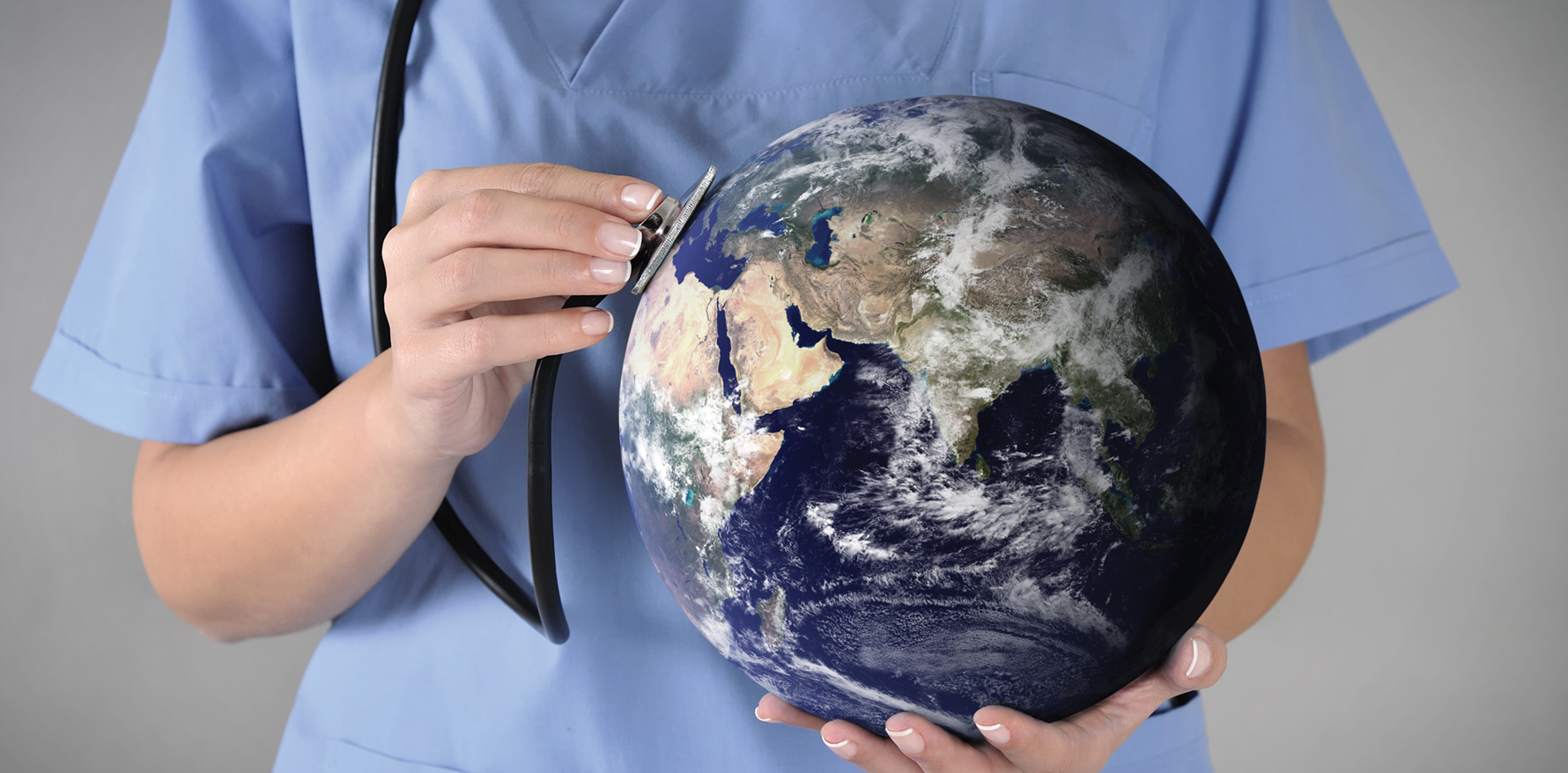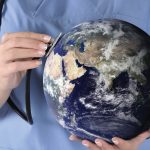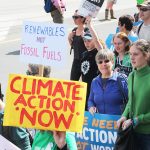Do doctors have the power to exert meaningful action on climate change?
Doctors have moral responsibilities that extend well beyond the clinical encounter, and there is growing pressure for them to take action on climate change.
This may seem like a radical idea, because moral responsibility in healthcare is typically thought of as patient care. Doctors have specific duties and obligations to patients that go beyond our baseline moral obligation to one another. For example, the obligation of beneficence, to act in the best interest of patients, is more demanding than the general moral duty that everyone has to show goodwill towards others.
Likewise, the duty to avoid harm to others plays out in particular ways as doctors have knowledge and skills that can be used to inflict a range of harms that are specific to medicine.
We can think of these responsibilities as role responsibilities. They arise because an individual is a doctor and by practising medicine, she takes on responsibilities towards patients that differ from the responsibilities that she has to others in her life outside of medicine.
There is general agreement about the responsibilities of medicine, which are described in various codes and standards. However, these codes and standards have less to say about doctors’ collective or group responsibilities.
Collective responsibility is a tricky concept to pin down as it is not always clear how an accepted collective responsibility should be shared amongst individual members of the group. As an example, let’s think of medical education.
It seems reasonable to claim that the medical profession as a group has a responsibility to ensure that the next generation of doctors receives adequate medical training. This can be considered a moral responsibility because the relevant action (educating medical students) affects the welfare of others such that not educating future doctors can be seen as a moral failing by the profession.
Thus offering clinical experiences to medical students is a collective responsibility of the profession. At least some doctors must take this on in order for medical education to succeed.
But the obligation to provide educational opportunities for students is not clearly defined in the way of obligations to do with patient care. Anyone who has tried to find placements for medical students knows that it can be difficult to find enough GPs who are able and willing to take on a student. Those who are asked to contribute in this way may well accept that there is a responsibility to host students, but the responsibility may seem less stringent than those associated with patient care so that taking a student feels more like a favour than a duty.
By and large, the collective professional obligation to educate the next generation is adequately met, although some doctors fulfil this responsibility to a greater degree than others. This example shows that it can be difficult to identify just who in a collective should bear the responsibility for ensuring that particular obligations of that collective are met.
The health of the public is another collective responsibility of doctors. Of course, doctors are not solely responsible for the public’s health, but there is a professional responsibility to provide health advice to governments, the public and individuals and to take appropriate actions when there are clear dangers to the public health.
As with education, it is not always possible to identify particular individuals to shoulder this responsibility (with the obvious exception of public health physicians). But here we run into a problem that does not arise with meeting collective responsibility for education. Regarding education, it is largely within the power of individual doctors to contribute to the collective responsibility; most can, at one time or another, contribute to teaching students.
It is less obviously within the power of individual doctors to take actions to further the public health, making it more contentious to claim that doctors should take action. But before we accept this limit on individual powers and public health, I want to unpack the issue by comparing action on the social determinants of health with action on climate change, as responsibilities may change with changing capacities for action.
I take it as uncontentious that both social determinants and climate change are major factors affecting the health of populations, and as such fall within the scope of medical responsibility, broadly construed.
The impact of social determinants on the health of individuals and populations is well recognised. From poverty to racial discrimination to environmental degradation and education, the conditions in which people live affect their health.
Yet despite knowing of the impact of social determinants on health, progress on addressing them has been glacially slow. Does medicine bear some of the blame for this and is there a collective medical responsibility for action?
The answer to this is complicated. Certainly individual doctors have a duty to ensure equity of access to their services and to avoid unjust discrimination. But addressing determinants like poverty, unemployment or education are beyond the reach of most doctors.
The welfare and education systems or the job market reflect political decisions; these are aspects of our socio-economic condition that are structured by the ideology and actions of governments. It’s not possible for individual doctors to alleviate local poverty or increase the educational standards through their own individual actions.
Thus although the link between social determinants and health is strong, it is not clear that there is an equally strong responsibility for doctors to take action because there is a paucity of effective actions to take. The power to change the social determinants of health lies largely with governments.
Let us turn now to climate change. Like social determinants, the changing climate increasingly impacts human health, putting it within scope as something for which the medical profession should take some responsibility.
What about power to act? Do doctors have the power to exert meaningful action on climate change?
Clearly at one level, it is the task of governments to set climate policies across various areas including energy, transport, agriculture and so on. But the government is not the only actor that can exert meaningful change.
Industries, individual companies and citizens can and are taking action on the climate. Because there is a range of possible actions on climate change, there is greater scope for doctors to act.
These actions might be on the individual level, just as taking a medical student is an individual response to the responsibility to educate. The actions might be as little as signalling concern about climate change. By signalling, I mean acts that communicate to others a concern about the issue in question.
So for climate change, signalling might include actions like offering vegan refreshments at professional meetings, buying only renewable energy for the practice or rigorous recycling.
All of these kinds of actions are within the power of individual doctors, and all contribute towards collective responsibility for climate change.
There is however, scope for much greater collective action. As a profession, doctors can draw urgent attention to the links between climate change and health, call for companies or industries to take action, lobby governments on behalf of patient cohorts who are increasingly affected by climate change and so on.
Doctors have the knowledge and the power to act on a problem that threatens human health. We need to embrace this a central collective responsibility, on a par with education, and take action.
Wendy Rogers is a Professor of clinical ethics at Macquarie University in Sydney






